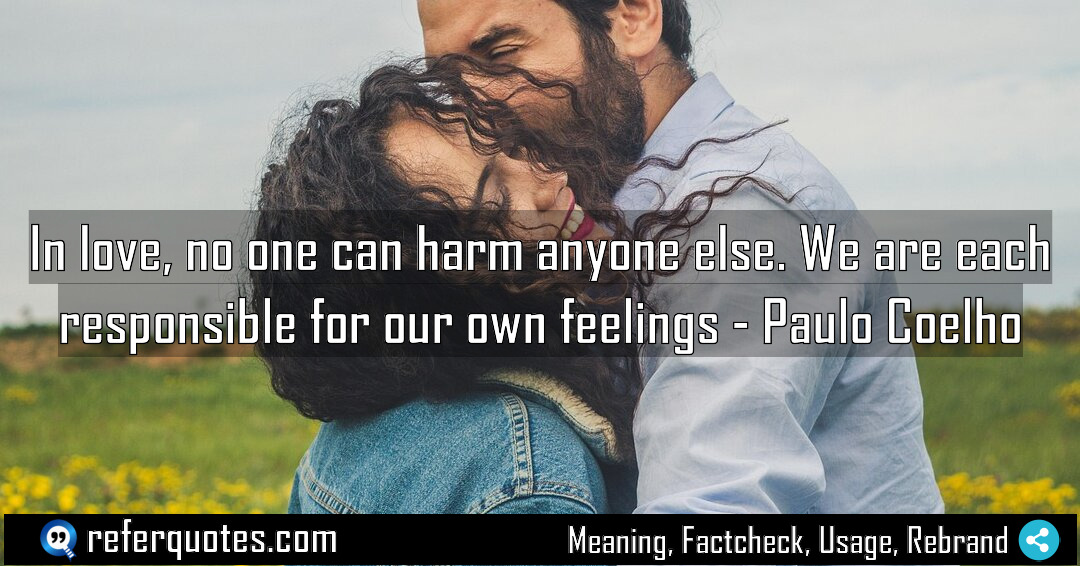You know, when Paulo Coelho wrote “In love, no one can harm anyone else,” he was pointing to a profound, and often uncomfortable, truth about emotional responsibility. It’s a concept that, once you truly get it, completely reframes how you approach your relationships. It’s less about blame and more about personal empowerment.
Share Image Quote:Table of Contents
Meaning
At its core, this quote is about radical self-ownership in our emotional lives. It shifts the entire paradigm of love from something that happens *to* us to something we actively participate in creating and managing.
Explanation
Look, I’ve seen this play out so many times. We tend to operate from this default setting that our partner *makes* us feel a certain way—they “make” us jealous, they “make” us angry. But what Coelho is getting at is that this is an illusion. A very convincing one, but an illusion nonetheless.
Your feelings are your internal response. They’re your responsibility. When you truly internalize that, you stop being a victim of other people’s actions and start being the author of your own emotional state. It’s incredibly empowering, but it’s also hard work because it means you can’t outsource the blame anymore.
Quote Summary
| Context | Attributes |
|---|---|
| Original Language | Portuguese (369) |
| Category | Relationship (329) |
| Topics | feelings (6), love general (86), responsibility (55) |
| Literary Style | clear (348), philosophical (434) |
| Emotion / Mood | calm (491), honest (52) |
| Overall Quote Score | 77 (179) |
Origin & Factcheck
This line comes straight from Coelho’s 2003 novel, Eleven Minutes. It’s often ripped from its context and shared as a standalone piece of wisdom, which it is, but it’s important to know it originated in a story about a young Brazilian woman’s complex and often painful journey to understand the nature of love, sex, and intimacy.
Attribution Summary
| Context | Attributes |
|---|---|
| Author | Paulo Coelho (368) |
| Source Type | Book (4032) |
| Source/Book Name | Eleven Minutes (47) |
| Origin Timeperiod | Contemporary (1615) |
| Original Language | Portuguese (369) |
| Authenticity | Verified (4032) |
Author Bio
Paulo Coelho(1947) is a world acclaimed novelist known for his writings which covers spirituality with underlying human emotion with a profound storytelling. His transformative pilgrimage along the Camino de Santiago inspired his breakthrough book, The Pilgrimage which is soon followed by The Alchemist< which went on to become the best seller. Through mystical narratives and introspective style, Paulo Coelho even today inspires millions of people who are seeking meaning and purpose in their life
Official Website |Facebook | Instagram | YouTube |
Where is this quotation located?
| Quotation | In love, no one can harm anyone else. We are each responsible for our own feelings |
| Book Details | Publication Year: 2003 (Brazil); ISBN: 978-0-06-058928-8; Latest Edition: HarperCollins 2004; 288 pages. |
| Where is it? | Chapter 3, Approximate page from 2003 edition |
